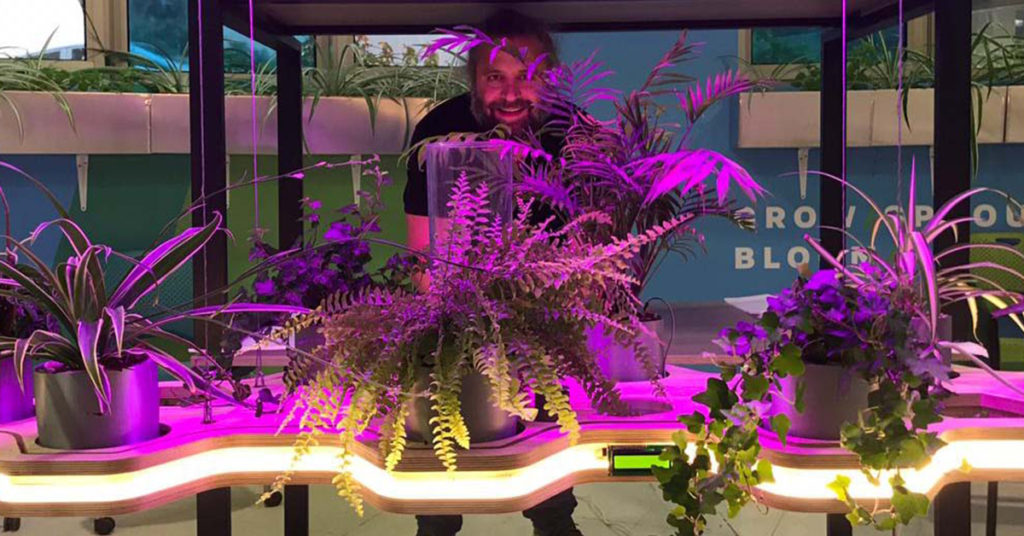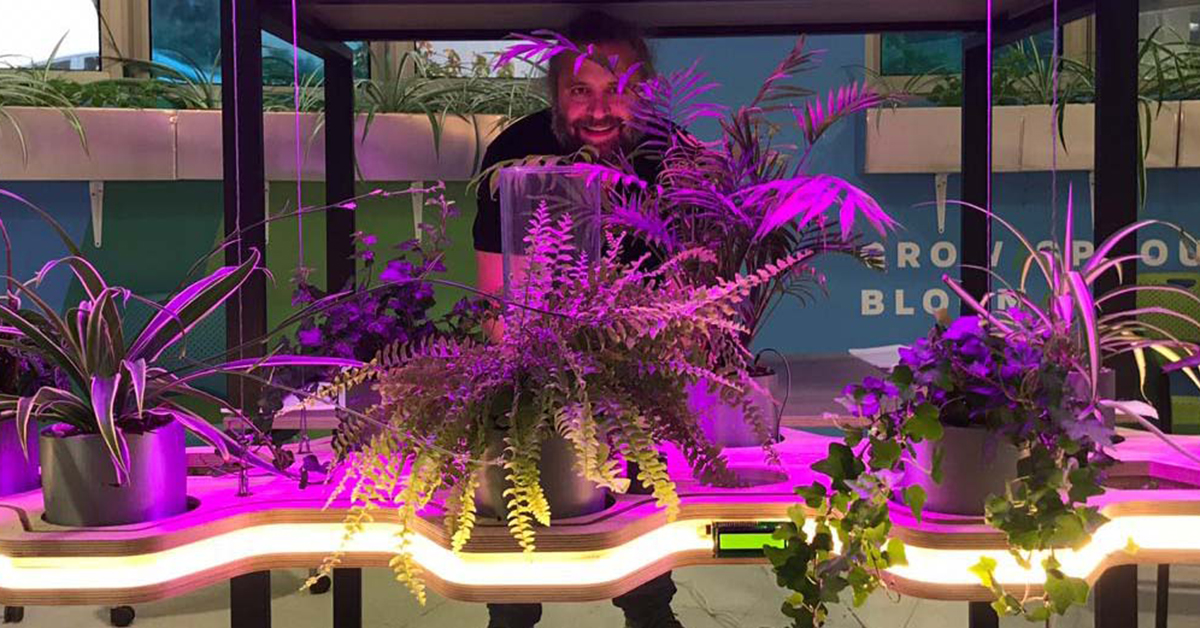
We are proud to announce that maker Nagi Abdelnour is one of only two students in Lebanon to graduate from Fab Academy this year.
The academy teaches makers how to envision, prototype and document their ideas through a hands-on experience with digital fabrication tools, taking a variety of code formats and turning them into physical objects. It runs in more than 70 Fab Labs, for more than 250 students per year in the largest campus of the world.
Fab Academy at the Berytech Fab Lab
Nagi was able to complete his five-month distant learning from Fab Academy at the Berytech Fab Lab, which is the only certified unit in Lebanon that acts as a middleman that allows students access to Fab Academy courses. It is the sole organization in Lebanon that is a member of the Fab Foundation.
Indeed, for the second year in a row, Berytech Fab Lab has allowed makers to be part of the global Fab Academy, a distributed educational program on digital fabrication, directed by Neil Gershenfield of MIT’s Center for Bits and Atoms, and delivered simultaneously in more than 60 fab labs across the world.
Hanging Garden
“My project consisted of an automated indoor hanging garden that has automated lighting, watering and ventilation,” Nagi told Berytech. “Every plant needs an optimal quantity of light, water and nutrients. This is why the planting pot is designed to have one water supply pipe connection, one drainage pipe connection and one ventilation pipe connection.”
The idea was to create a suspended supporting tray where all the desired plants can be put with their pots on it, and the system will take care of the needed lighting, watering and ventilation for air purification. This system can be used at home for people who love greenery but don’t have the time to take care of it. And because it needs less maintenance, it can be used also in public places where the ceiling is high, and the automation will take over.
Nagi, who is an architect by profession, went on to explain that a ‘grow light’ will be installed and controlled via a clock and a light sensor, and the watering system will be ‘from the bottom’ up by soaking the plant pot in water for a certain time until the top of the potting mix is wet. This technique will save water because all the unused water will return to the main water tank where the required nutrients can be added.
As for ventilation, he said, a controlled fan will do the job by sucking air from the plant soil surface through the potting mix and roots, allowing by that the removal of excess moisture and air purification.
New Skills Learned
In order to finish his project, Nagi learned several new skills during the 19 weeks he was enrolled in the Fab Academy: 2D/3D design, Laser cutting, 3D Printing, CNC Milling, Electronic Design, Electronic Production, Programing, Network and communication.
Wael Khalil, Berytech Fab Lab coordinator and Fab Academy instructor, had this to say: “Nagy came to us as an architect with zero experience in electronics and digital fabrication. We taught him in the Fab Academy how to 3D model, 3D print, laser cut, among other things. He managed quite an achievement.”
Nagi also attended the annual Fab 15 conference in Egypt, where his project was named one of the top 10 projects for 2019. Fab 15 is an international event that gathers field practitioners and laboratory researchers from all over the globe for a week of panels and hands-on workshops on the principles and applications of digital fabrication.
Nagi’s future plans are to further develop and test his project and upgrade it accordingly, in order to have a customizable commercial product in the future.
Fab Academy Diploma
As for the Fab Academy Diploma, it consists of 19 different certificates in digital fabrication tools and disciplines, to be completed within 5 months, from January to June.
During the Fab Academy program, global lectures, which include topics that cover fabrication from computer-aided design, to electronics, 3D molding, machine design, and embedded networking, are broadcasted every week.
During the Fab Academy program, global lectures are broadcasted every Wednesday. “At the Berytech Fab Lab, we met every Wednesday to review the weekly assignments and follow the global lecture together. The Thursdays were dedicated to the classes whose topics varies each week. During the other days of the week, students had access to the Fab Lab machines, tools, and support,” explains Wael.
The Fab Academy is ideal for students, artists, designers, teachers, engineers, computer scientists, professionals, researchers, fab lab managers, and all makers across Lebanon who like to tinker and make stuff, themselves. Berytech will soon announce the next classes for Fab16.
Check out Nagi Abdelnour’s project in details here.








